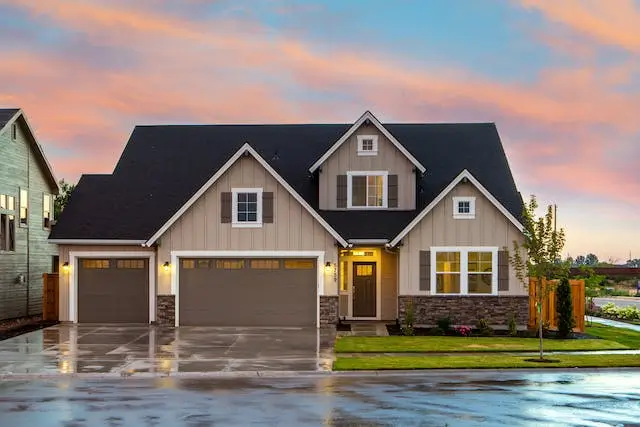If you own a home, condo, or townhouse that’s part of a planned community or subdivision, chances are you live in a neighborhood managed by a homeowner’s association (HOA). HOAs are responsible for governing common areas and enforcing rules that promote a pleasant living environment for residents.
Here are six key things you should know about HOAs if you own a home in an HOA-managed community:
HOAs Collect Dues and Assessments
HOAs are nonprofit organizations, but they still need money to provide services residents expect. Homeowners pay regular dues as well as special assessments for major repairs and improvements. The HOA sets the dues amount and collects payments. Failing to pay can result in fines or liens against your property.
The typical HOA fees may vary widely based on amenities and services. Special assessments may also be charged for large, urgent projects like roof replacement or lawsuit settlements, and can cost thousands of dollars extra per homeowner.
The HOA sets the budget and dues amount each year based on anticipated operating expenses and reserve funding targets. Homeowners must pay these mandatory financial obligations to remain in good standing.
HOAs Maintain Common Areas
One major responsibility is overseeing maintenance and upkeep of common areas like green spaces, pools, clubhouses, playgrounds, parking lots, sidewalks and streets. The HOA manages contractors to care for these shared amenities that impact home values and quality of life. Maintenance is funded by homeowner dues.
Common areas typically account for the largest share of an HOA’s annual budget and overall management focus. Contracted services may include ground-keeping, stairwell cleaning, swimming pool care, snow removal, elevator servicing, and road/parking lot paving.
Proper upkeep of these shared spaces allows residents to enjoy the full benefits of community living and promotes an appealing environment across the development. Close attention is paid to ensuring safety, appearance, and functionality of common areas.
HOAs Enforce Rules and Regulations
If you have a house plan in mind, remember that HOAs have rules and regulations. To ensure a well-kept community, HOAs adopt covenants, conditions and restrictions (CC&Rs) that residents must comply with. Rules often relate to home exterior maintenance, landscaping, home businesses, pets, parking, garbage collection, noise levels and more. They aim to preserve community aesthetics, promote safety, avoid nuisances, and maintain harmony.
Fines can be issued if rules are violated. The consequences for violations vary based on severity but may include fines, suspension of privileges, or legal action if non-compliance is egregious.
Typical restrictions include garage door always being closed, number of pets, exterior paint colors, yard maintenance, prohibited parking spots, and prohibited businesses. The HOA board issues warnings, determines fines, oversees the appeals process, and may place liens on homes for unpaid fines.
While some residents resent overbearing rules, they are aimed at preserving home values and quality of living. Buyers should thoroughly read all CC&Rs before purchasing a home in an HOA to ensure they can live with the extensive governing guidelines.
HOAs Are Managed By A Board
While all residents can vote on major HOA decisions, everyday operations are handled by a volunteer elected board of directors. Typically consist of 5-11 residents elected by homeowners, their key responsibilities involve financial planning, maintenance scheduling, contractor oversight, and ensuring community rule compliance.
Boards also facilitate regular homeowner meetings, provide access to governing documents, and give notice on major decisions impacting the community. Homeowners unsatisfied with the board’s decisions or performance can campaign and vote in annual board member elections.
Establishing a representative, prudent, and responsive elected board is crucial to proper HOA functioning. Homeowners should attend board meetings, vote in elections, and consider running if wanting direct input on community governance.
HOAs Provide Continuity And Stability
Having an association that manages operations, makes financial plans and enforces standards usually enhances a community’s longevity and market value. HOAs aim for continuity even as homes change owners. This allows for coordinated preservation and improvements.
With controlled maintenance, proactive planning, and governed aesthetics, neighborhoods can uphold their appeal far longer compared to unmanaged areas. Savings set aside in reserve funds ensure resources are available for future repairs, while consistent rule enforcement prevents declines in condition.
An active HOA helps sustain desirable traits that attracted residents originally, from manicured green spaces to uniform architecture. New home buyers can feel reassured that the development will maintain safety and appearance for years to come.
The oversight and planning of an HOA offer residents confidence their neighborhood will be well-preserved. This offers stability for a community as homes turn over, keeping satisfaction and property values high over the long term.
HOAs Have Authority Over Alterations
Because HOAs oversee aesthetics and ensure homes uphold community standards, they typically must approve any visible exterior alterations. That includes elements like paint color, siding, fencing, deck additions and major landscaping changes. Requests must accord with established guidelines on the CC&Rs.
Final Thoughts
HOAs are created to establish and enforce uniform neighborhood operating procedures. While they can sometimes be viewed negatively when rules are excessive, most residents appreciate the services and coordination they provide.
Knowing what to expect from an HOA will help you make informed homebuying decisions and avoid issues as part of one. Consider both the drawbacks and benefits an HOA may pose before purchasing a home governed by one or serving on the community board.

Kudos on this insightful piece! Managing Zulu Painting, LLC in the DMV, I often witness the struggles homeowners face with HOA regulations. Your emphasis on continuity and stability is crucial. It’s all about finding that sweet spot between community standards and allowing homeowners the freedom to express themselves. Great read!